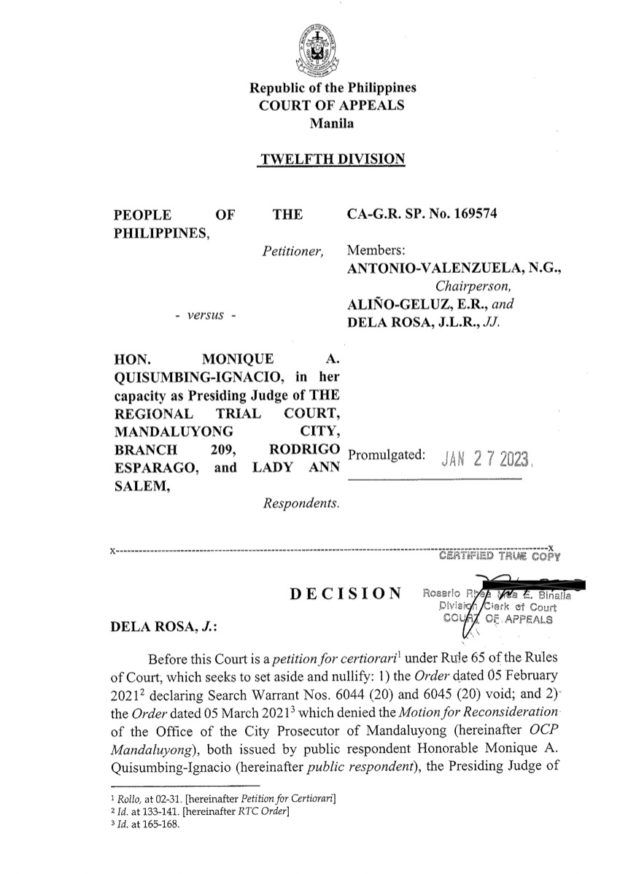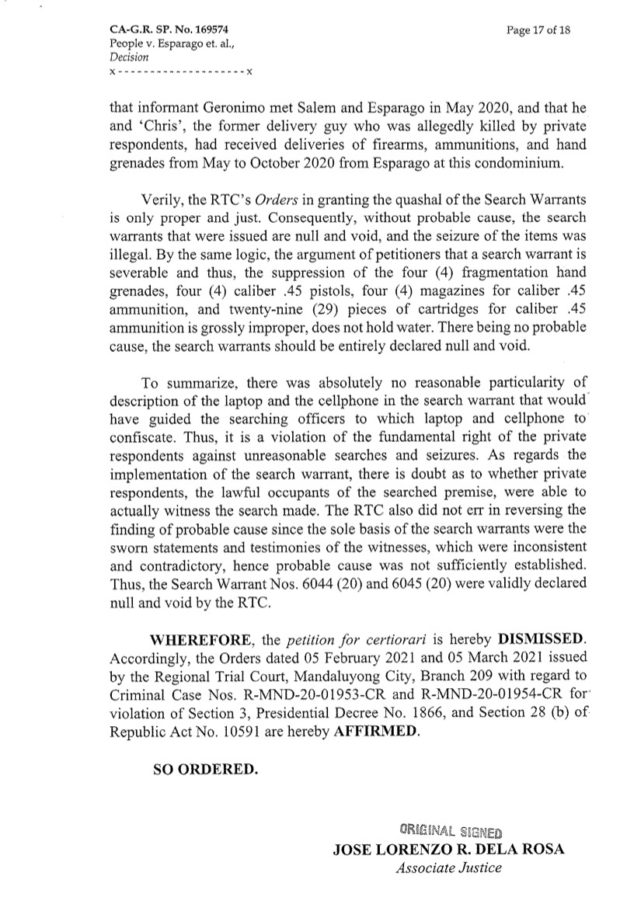CA affirms dismissal of case vs red tagged journo, trade unionist

The Court of Appeals in Manila (COURT OF APPEALS WEBSITE)
MANILA, Philippines – The Court of Appeals affirmed the Mandaluyong Regional Trial Court’s decision to quash the search warrants issued against journalist Lady Ann Salem and trade unionist Rodrigo Esparago.
Salem and Esparago were arrested on December 10, 2020, after authorities seized firearms during the implementation of the search warrant.
They were allegedly involved in gun-running.
In February 2021, the Mandaluyong Regional Trial Court Branch 209 quashed the search warrant and declared the illegally seized items as inadmissible.
The CA cited the errors pointed out by the Mandaluyong Court, such as the vague description of the laptops and mobile phones in the search warrants to guide the authorities.
Article continues after this advertisement“As correctly held by the RTC, not knowing which cellphone and laptop the searching officers were supposed to seize, the raiding team took all that they found and undertook a ‘fishing expedition to seize and confiscate’ any and all cellphones and laptops they found in the premises,” the CA said, adding that the authorities who seized the items could not even remember the color or brand of the laptops and mobile phones seized
The CA added that taking items that were not even mentioned in the search warrant “is a violation of the fundamental right of the private respondents against unreasonable searches and seizures.”
Esparago and Salem said the search warrants were implemented past midnight. They said they were made to kneel and face the wall, not allowing them to witness the actual search that took over an hour.
The CA noted that the police did not refute the claims of Esparago and Salem.
“The RTC did not err in reversing the finding of the probable cause since the sole basis of the search warrants were the sworn statements and testimonies of the witnesses, which were inconsistent and contradictory, hence probable cause was not sufficiently established,” the CA said.
CA Third Division Associate Justice Jose Lorenzo Dela Rosa penned the ruling and concurred with Associate Justices Nina G. Antonio-Valenzuela and Emily Aliño-Geluz.

